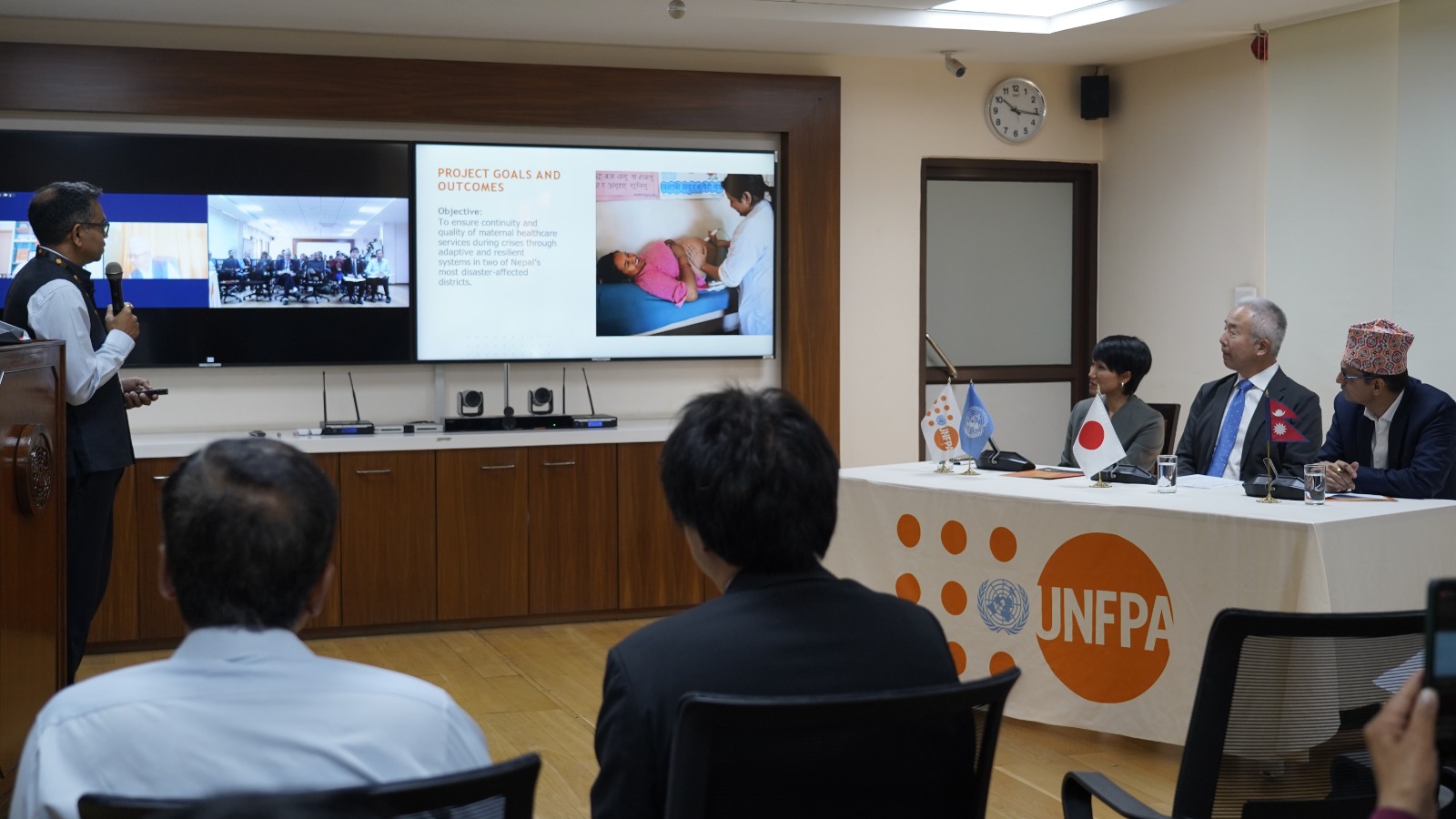ICC’s Chief Executive David Richardson talked to mediapersons in Kathmandu on Monday. During his brief interaction with the press, Richardson said Nepal’s national squads are capable of playing cricket at the highest level, and reaching knock-out stages of ICC-organised tournaments.
According to Richardson, the ICC wants Nepal’s cricket body to be back as its associate member by June next year. He says,”As you may know, the ICC’s four-year strategic plan’s main focus is on developing more cricketing countries that can compete at the highest level.”
“A few weeks ago, when we launched the Champions Trophy in the UK, I had mentioned countries like Nepal, Afghanistan and Ireland as countries that have immense potential.” ” I did not say that lightly, you have natural cricketing talent here. You also have cricketing culture here that countries like Holland, Ireland and Scotland are not privileged to have.”
Richardson, who was accompanied by ICC’s Chairman of Associates Imran Khwaja and Finance Manager Ammar Sheikh, said, ” We do not want to see Nepal cricket fail. We have a vested interest in seeing Nepal cricket develop and build on what it has achieved in the last few years.”
Excerpts from the interaction:
You said that the ICC wants to set up an advisory group in Nepal to resolve the dispute in CAN. Who are going to be its members?
The committee shall have various stakeholders of Nepal cricket. It will have representatives from the government, the sports council and the cricket community. We haven’t yet decided who is going to be on it. I am just giving you a broad idea that we are working on. There are lot of things, such as the committee’s ToR that need to be documented. We will do that hopefully within the next two weeks.
Who is going to lead the committee?
I will personally look at things from the ICC point of view. But as you may already know, the ICC’s Global Development Manager Tim Aderson has left for Australia; he’s also helping us with our USA project. We are in the process of naming his replacement. So at a more hands-on basis, the ICC’s Ammar Sheikh, who has been with us for a long time and knows Nepal cricket, will look at things on behalf of the ICC.
You said that the advisory committee will review the CAN statue and conduct elections. But is this process not going to take at least 2-3 years? What will happen to the game in Nepal during that period?
First of all, I would like to say that the ICC hopes to get Nepali cricket to normal by June 2017. But we hope that a shorter timeline is also possible. We have talked to the honourable Prime Minister and other stakeholders. We hope that the problem will be resolved latest by June 2017.
In the meantime, the ICC does not want to see the national squads’ preparations for international tournaments hampered. They should not feel disadvantaged in any way.
Will the suspension on Nepal be lifted after the formation of the advisory group?
The advisory group has a lot of work to do. The main reason the cricket body was suspended was because there was government interference. The ICC’s charter says members shall hold free and fair elections, that did not happen in Nepal.
That is why we need to work on a new charter that is acceptable to members of the cricketing community here and is compliant with the ICC charter.
After the advisory group reviews the charter, everyone will be happy and fresh elections will be held. That would put an end to political interference in cricket, and Nepal can get back to becoming a member of the ICC again.
What if the court passes a verdict on the CAN dispute after the advisory committee is formed?
We are not absolutely certain when that verdict will come. But we are not trying to interfere in the court’s legal process. We will have to accept whatever verdict comes from the court.
If cricket is to be developed, the community should accept the board. What we want is to see is a situation in which everyone unites and a charter is passed.
What about the funds the ICC has for Nepal? Will that be released as well?
The cricket body will remain suspended. The ICC has set aside money it needs to give to Nepal. We will use the funds to make sure that cricket survives in Nepal. We will release funds for the national squads to take part in international tournaments. We are also well aware that that the groundstaff may also need to be paid.
According to international media reports, your proposal to introduce a two-tier Test system in international cricket has met with some resistance. Even the BCCI chief has come out against it. What is its fate going to be like?
We are well aware that the proposal has not received universal acceptance. The ICC is going to meet in October, and this proposal will be discussed there. In fact, full members of the ICC are meeting in Dubai in a few days time. The proposal will be discussed there also.
What we want to do is create a structure in which countries like Afghanistan, Nepal and Ireland get to play cricket at the highest level, based on the merit of their performance. At the moment, that is not possible. We only have the Intercontinental Cup, and that is not enough.






















